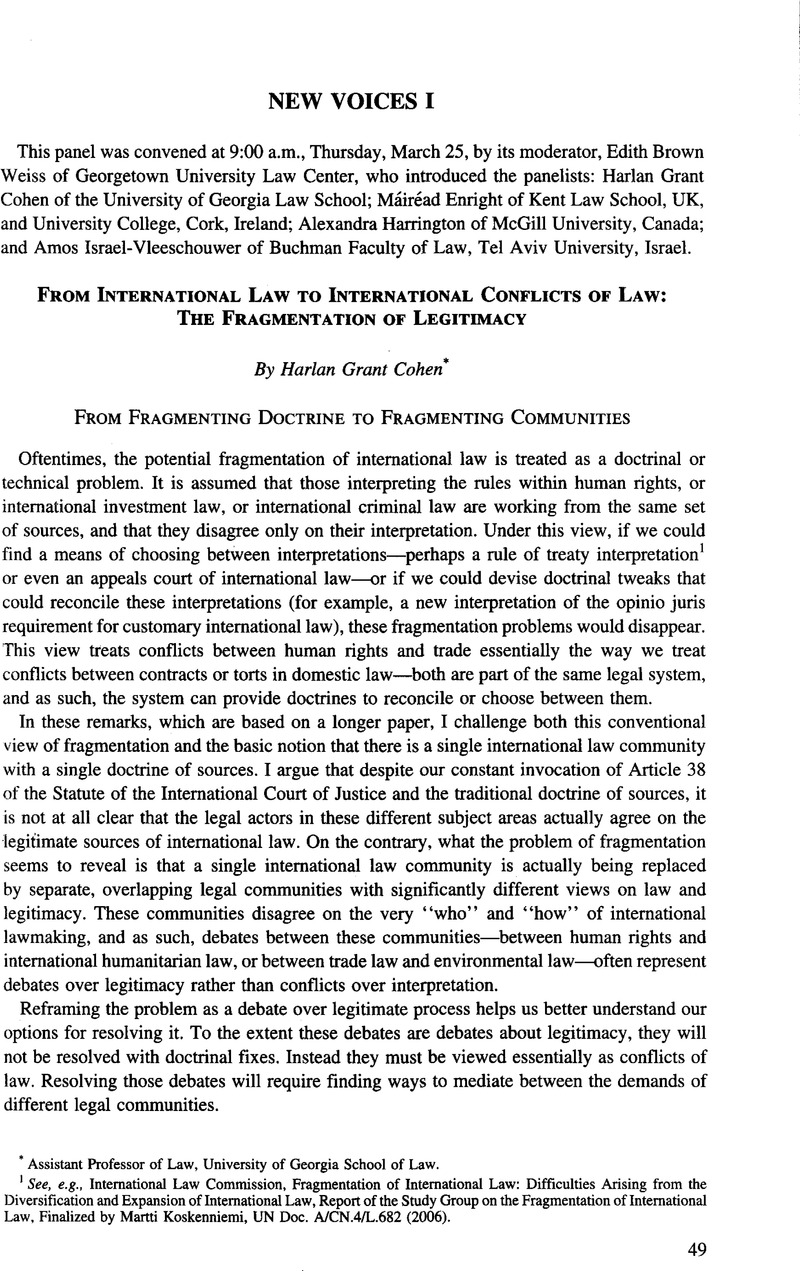No CrossRef data available.
Article contents
From International Law to International Conflicts of law: The fragmentation of Legitimacy
Published online by Cambridge University Press: 28 February 2017
Abstract

- Type
- New Voices I
- Information
- Copyright
- Copyright © American Society of International Law 2010
References
1 See, e.g., International Law Commission, Fragmentation of International Law: Difficulties Arising from the Diversification and Expansion of International Law, Report of the Study Group on the Fragmentation of International Law, Finalized by Martti Koskenniemi, UN Doc. A/CN.4/L.682 (2006).
2 See generally Fischer-Lescano, Andreas & Teubner, Günther, Regime-Collisions: The Vain Search for Legal Unity in the Fragmentation of Global Law, 25 MICH. J. Int’l L. 999 (2004)Google Scholar. See also generally Kingsbury, Benedict, International Law as Inter-Public Law, in NOMOS XLIX: Moral Universalism and Pluralism at 176 (Richardson, Henry R. & Williams, Melissa S. eds., 2009)Google Scholar.
3 See, e.g., Berman, Paul Schiff, Global Legal Pluralism, 80 S. Cal. L. Rev. 1155, 1169 (2007)Google Scholar. Berman mostly looks at conflicts between international law and state law, regional law, or transnational regulatory regimes, but implies that his view would apply to intra-international law conflicts as well.
4 Cohen, Harlan Grant, Finding International Law: Rethinking the Doctrine of Sources, 93 IOWA L. Rev. 65 (2007)Google Scholar.


